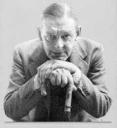Tuesday, October 23: High-Heeled Gumshoe
ON FIRE
by Melodie Johnson Howe
 The Santa Anna winds are blowing and Southern California is burning which makes me want to reread Raymond Chandler and Ross Macdonald. T.S. Elliot called April the wickedest month, but for us who live here, it’s October.
The Santa Anna winds are blowing and Southern California is burning which makes me want to reread Raymond Chandler and Ross Macdonald. T.S. Elliot called April the wickedest month, but for us who live here, it’s October.
 In Raymond Chandler’s The High Window:
In Raymond Chandler’s The High Window:
The wind had risen and had a dry taut feeling, tossing the tops of trees, and making the swung arc light up the side street cast shadows like crawling lava.
And later:
I was hungry and hollow inside. I went over to Vine to eat, and after that I drove downtown again. The wind was still rising and it was drier than ever. The steering wheel had a gritty feeling under my fingers and the inside of my nostrils felt tight and drawn.
Notice the choice of words: risen and rising. Each gives a sense of the winds growth and power. And the gritty feeling under Marlowe’s fingers also reflects the dirtiness of the case he is on.
I can smell fire now. We are not in danger. The smoke is blowing from Santa Ynez over the Montecito Mountains to us. If the wind doesn’t slow or change direction I know there will be a dimming of sunlight and the fall blue sky will turn into an ugly orange glow.
 In Ross Macdonald’s The Underground Man:
In Ross Macdonald’s The Underground Man:
A rattle of leaves woke me some time before dawn. A hot wind was breathing in at the bedroom window. I got up and closed the window. And lay in bed listening to the wind.
Later he writes:
The edges of the day had a yellowish tinge like cheap paper darkening in the sunlight. There was no wind at all now, but I could smell the inland desert and feel its heat.
Soon Archer will discover a body in the burning hills:
I slammed the door of the convertible. A noise that sounded like an echo or response from the direction of the trees. Perhaps it was the crack of a stick breaking. I went out and headed for the partly burned groove. All I could hear was the sound of my own footsteps and a faint sighing which came from the wind in the trees.
Then I made out a distant noise which I didn’t recognize. It sounded like the whirring of wings. I feel the hot wind on my face, and glanced up the slope.
The wall of smoke that hung above the fire was leaning out from the mountain. At its base the fire was burning more brightly and had changed directions. Outriders of flame were leaping down the slope to the left, and firemen were moving along the ridge road to meet them.
The wind was changing. I could hear it rattling now among the leaves – the same sound that had wakened me in West Los Angeles early that morning. There were human noises too — sounds of movement among the trees.
After identifying the body, Archer again looks at the fire.
… It blazed like a displaced sunset through the trees. The black silhouettes of men fighting it looked small and futile in spite of their tanker trucks and bulldozers. Off to the left the fire had spilled over the ridge and was pouring downhill like fuming acid eating the dry brush. Its smoke blew ahead of it and spread across the city toward the sea.
Archer knows that finding a dead body can make any detective feel small and futile too.
I could not end this column without mentioning the short story “Red Wind.” We all know the famous opening:
There was a desert wind blowing that night. It was one of the those hot dry Santa Anas that come down through the mountain passes and curl your hair and make your nerves jump and your skin itch. On nights like that every booze party ends in a fight. Meek little wives feel the edge of the carving knife and study their husband’s necks. Anything can happen. You can even get a full glass of beer at a cocktail lounge.
The story ends with Marlowe in an upscale cocktail lounge with a woman he has tried to help. He leaves her alone in the bar. He knows they don’t move in the same circles:
I went out the bar without looking back at her, got into my car, and drove west on Sunset and down all the way to Coast Highway. Everywhere along the way gardens were full of withered and blackened leaves and flowers which the hot wind had burned.
The story begins with the wind blowing and ends with the damage it has caused. Not unlike the characters he has encountered.
Now the wind here has changed direction and the smell of smoke has gone. It has even cooled. Soon the marine layer will creep in. If the Santa Ana wind didn’t exist I’m sure that either Raymond Chandler or Ross Macdonald would have created it. These two romantic realists understood the heaven and the hell that is Southern California.




















Wow! I’ll have to read those! AND get out to California some day. (I always think of those writers as describing L.A. in the rain!) All the best to you and yours during cruel October.
It rains in L.A.?